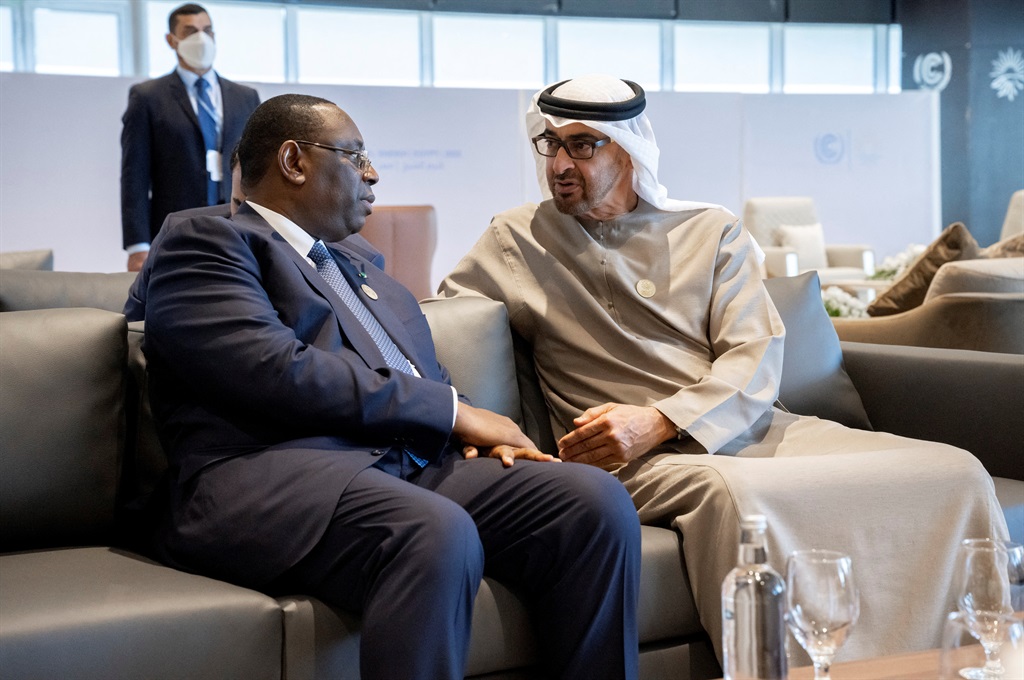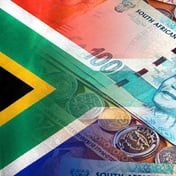
BUSINESS
The African Union (AU) expects to officially join the Group of 20 nations this month, providing the continent with another seat at the table with some of the world’s biggest polluters as it confronts the fallout from global warming.
The continental group aims to use the opportunity to call on rich nations to honor their promises to tackle climate change, including providing developing countries with $100 billion in financing each year, said Macky Sall, the president of Senegal who holds the AU’s rotating chairmanship.
G20 nations are responsible for 80% of global emissions, while Africa accounts for less than 4%.
READ: Analysis | Renewables shift lays bare Africa's energy dilemma
"Pledges haven’t been fulfilled," Sall said in an interview at the COP27 climate talks in Sharm El-Sheikh, Egypt.
"There have been some efforts, but they’ve been below our expectations."
When the AU "joins the G20, we’ll be able to speak regularly to our partners," he said.
READ: Africa needs a new deal on energy to benefit our economies - Gwede
South Africa is currently the only African member of the G20, which will hold its summit in Bali later this month, and Sall expects the AU’s accession to the G20 to be approved at that meeting.
In an address to the UN General Assembly last month, he lamented Africa’s exclusion from groups such as the G20 and the Security Council, saying the continent needed to be represented at forums whose decisions affected its 1.4 billion people’s lives.
Senegal is pushing ahead with its plans to develop its liquefied natural gas industry -- it intends using the fuel to generate electricity and exporting some of its output to Europe and other markets, enabling it to generate much-needed foreign exchange.
The West African nation’s economy is set to expand the most in sub-Saharan Africa next year, when it’s set to start producing gas from the BP-backed Greater Tortue Ahmeyim field, International Monetary Fund projections show.
Sall said:
"The majority of our population doesn’t have access to electricity."
The GTA project, straddling the border between Senegal and Mauritania, is set to start production in the third quarter of 2023.
A second phase may start as early as 2024, but will require about $5 billion in financing that may be difficult to secure given the increasing antipathy toward fossil-fuel projects.
READ: Emerging markets need climate cash: How will they get it?
Senegal is also among a handful of developing countries negotiating for a financing package funded by wealthy nations to help it transition to cleaner forms of fuel.
It envisions clinching a deal modeled on one South Africa reached with the US, EU, UK, France, Germany and several institutions to access $8.5 billion R153 billion), mainly in the form of loans.
Germany and France are among potential backers for renewable-power projects in Senegal, Sall said at the COP27 meeting.
Global warming could slash Africa’s economic growth by two thirds by the end of the century unless significant investment is made in climate adaptation, a new study shows.
Current climate policies will likely see temperatures exceed the pre-industrial average by 2.7C, curbing African growth rates 20% by 2050 and 64% by 2100, Christian Aid said in a report released Wednesday.
Even a 1.5C rise in temperatures would reduce growth rates by 34% by the century’s end, it said.
While Africa is responsible for about 4% of planet-warming emissions, it’s already being hit hard by a changing climate.
Devastating cyclones and floods have battered southeast and West Africa this year while the Horn of Africa is in the midst of its worst drought in four decades.
"All of these low and lower-middle income countries face massive cuts to their economic growth rates because of climate change in the years and decades to come," Christian Aid said.
"These growth rates are already under huge short-term pressure due to the impacts of Covid, deepening debt crises, rising dollar interest rates and austerity becoming a condition of more donor funding."
The impact is already being felt. Between 1991 and 2010, warming temperatures reduced African growth rates by 13.6%, Christian Aid said, citing an earlier study.
Under the warmer scenario, Sudan could lose 84% of its projected economic growth by 2100. Mauritania, Mali, Niger, Chad and Burkina Faso may suffer similar losses, the report showed. Economic growth in Nigeria, Africa’s most populous country, could decline by 75%. - Bloomberg
READ: Multilateral financiers must be reformed to help address climate crisis - Creecy
He echoed calls made by South African President Cyril Ramaphosa for more grant funding to be made available to fund green energy and counter climate change.
"It’s paradoxical for African countries to rely on debt to finance adaptation projects," Sall said in the interview.
"If Africa is going to raise debt to reduce greenhouse emissions, there’s a problem."




 Publications
Publications
 Partners
Partners









